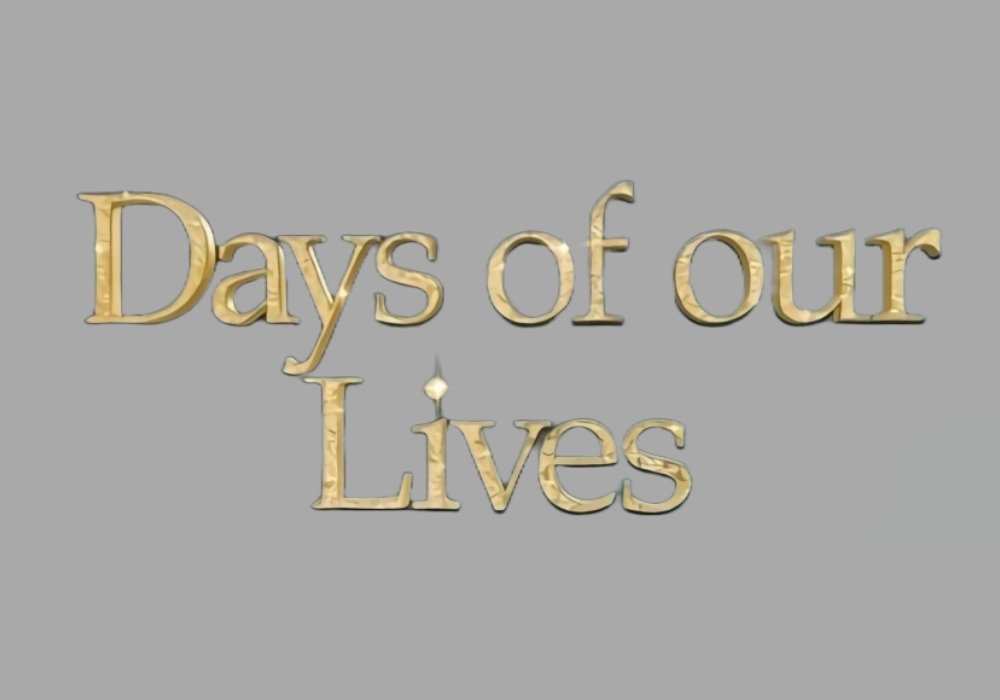Small Screens: BBC Hits Diversity Commitment Mark Early, Misconduct Investigation of ‘Days Of Our Lives’ Co-EP Albert Alarr
Days of our lives - peacock
Broadcast: The long-running daytime soap Days of Our Lives is going on an unplanned hiatus after an internal investigation of misconduct allegations against co-executive producer/director Albert Alarr. The nine week investigation, which began in March, was spurred by a complaint that female employees had been disproportionately impacted by recent layoffs and were not receiving equal pay. DoOL distributor Sony Pictures Television conducted the investigation, interviewing about 30-40 people, mostly women. Gender disparity on the show could be pointed to with casting cuts – 5 female contract players got let go or bumped to recurring and 2 left, compared to one male cast member being laid off – and crew – there is only one consistent female director alongside 3 male directors, compared to 4 female directors and 3 male on General Hospital (though head writers and executive producers are predominantly male across daytime). Allegations against Alarr, who joined Days in 2003 and became co-executive producer in 2015, go farther, though, with multiple insiders saying he was abusive and made people feel uncomfortable or humiliated. While men were also bullied on set (one alleged incident surrounds an actor being abruptly written off after Alarr yelled at him for getting a contractually allowed hair trim), there are reports that Alarr has created, as one staffer put it, a frat-house culture that sexualizes and objectifies women. This includes giving directing notes “in the most vulgar, crass ways,” which makes “not only women but everybody feel uncomfortable” (for example, using the F-word when referring to making love on the show, according to one insider), but also charges of inappropriate touching. Allegations range from directing instructions that incorporate the inappropriate touching of actresses, to an incident from 5-6 years ago (which was looked into by the investigation) in which Alarr is said to have forcibly kissed a Days actress, and another from a year ago in which he told an actress filming an intimate scene (who was said to be in her early 40s at the time) to “try and remember what it was like when you were young and vibrant,” (after Alarr eventually apologized to her, she was informed a few months later she would be written off). Witnesses corroborated these incidents and others during the investigation and Alarr admitted to at least some of them.
According to people who have observed Alarr’s behavior on Days, issues escalated after he became executive producer, with one veteran saying,
“He became much more tyrannical, I think he became much more aware of his unilateral power, and that Ken [Corday] wasn’t going to be involved in decision-making. And I think [Alarr] took the ball and ran with it, and I think it’s ruined the show.”
Ken Corday, executive producer, owner of Corday Productions, and son of Days creators, Ted and Betty Corday, has been associated with Alarr for decades and has little physical presence on set, making him unavailable as a confidante for cast and crew or a check on Alarr’s power. That leaves Alarr as the top dog, with one staffer explaining,
“You don’t want to challenge him, because he’s in charge of everything; he decides who stays, who goes, who get stories. If you are someone that was going to make a problem for him, he would just call you a budget cut and get rid of you.”
Sources also point to a lack of HR on set as part of the problem (the closest HR infrastructure to the Burbank studio is at Sony TV in Culver City). And beyond alleged misconduct by Alarr himself, there is a sense that the working environment under his leadership is not one of safety and respect. In one reported incident, a female production employee was yelled at and a male actor put his hands on her, though when an actress brought the matter to Alarr, he came, saw that the actor’s hands were no longer on the female employee, and walked away (according to a source with direct knowledge of the situation).
While these allegations were all investigated by Sony, they passed their findings to Corday Productions, saying in a statement that, based on the report’s findings, “Corday Productions has taken a series of actions designed to ensure a safe and respectful work environment.” Sony did not elaborate on what those actions are, citing a confidential employee matter. According to inside sources, Alarr received a written warning and was asked to undergo training, but has remained in his executive producer and director roles, leaving cast and crew who were aware of allegations and the investigation outraged. Corday Productions has also reportedly not addressed the investigation internally and has not shared its results with staffers, leaving many in the dark. However, Alarr’s on-set presence has been scaled back over the past couple months, perhaps due to the investigation, or having to spend more time keeping scripts generated amidst the writer strike, or another reason entirely. Additionally, last month, production added a week of hiatus starting June 17 on top of a planned two week break around July 4 (though sources close to production say the extra week was a scheduling decision made at least in part due to the script shortage from the writer strike). And while no reason has been given for the current hiatus, the pause is expected to give DoOL entities space to evaluate the situation before it escalates further. The current hiatus for Days, which streams on NBCUniversal’s Peacock service, will run until at least August 7 (as of July 28, filming was planned to resume July 31).
Daytime soap General Hospital has hired temporary writers amidst the WGA strike. In a private Instagram post on July 25, Shannon Peace, a writer for General Hospital, wrote that “scab writers” were now writing for the series exclusively. She added,
“Daytime writers face a unique conflict during strikes. We hate to see our characters and storylines handed over to ‘writers’ who cross the picket line. But we’re also keenly aware that stopping production could spell the demise of soap operas.”
Even though SAG-AFTRA is also striking, soap actors are still allowed to work, meaning soaps still need writers. Daytime dramas, morning news shows, talk shows, variety, reality, game shows, sports, and promotional announcements are all covered by the the National Code of Fair Practice for Network Television Broadcasting (aka the Network Code); the current agreement, negotiated between SAG-AFTRA, the Big Four broadcast networks and other producers, was reached a year ago and goes through July 2024. While daytime soaps tape well in advance, giving them a buffer zone in times like these, they are starting to turn to financial core (fi-core) writers (writers who resigned their WGA membership while still benefiting from collective bargaining contracts) and even producers, assistants, and executives for scripts. During the 2007-08 WGA strike, 28 writers went fi-core (according to the guild), and the WGA has listed five who went fi-core this year. Almost all of the 28 in 2007-08 and 3 this year work on daytime dramas. Eight daytime dramas kept going through the last work stoppage and this time – in addition to General Hospital – Days of Our Lives, The Young and the Restless, and The Bold and the Beautiful also remain in production and are working on new scripts.
Homeland star David Harewood, along with more than a dozen new actors, including BAFTA-winner Monica Dolan, are joining Season 2 of James Graham’s BBC drama Sherwood. The series follows
“the happenings in a small, former mining village in Graham’s home county of Nottinghamshire. The second season moves forward to the present day, introducing two new families that find themselves entangled with the Sparrows, entering a complex web of local gangs, old rivalries, revenge, and betrayal.”
The first season was watched by millions per week and was nominated for three BAFTAs, with Adeel Akhtar winning for Best Supporting Actor. Lead actors David Morrissey and Lesley Manville will return, with Graham writing the six episodes and three-time BAFTA nominee Clio Barnard directing. The second season of Sherwood is produced by House Productions, executive produced by Graham and Barnard, and internationally distributed by BBC Studios, which owns House Productions.
Jaz Sinclair - Gen V / Amazon Prime
Streaming: Gen V, the spinoff series of Amazon Prime’s The Boys, finally has a release date. The third series in The Boys franchise (alongside the main series and the animated anthology The Boys Presents: Diabolical) will drop its first three episodes on September 29, with new episodes weekly until the season wraps November 3. Per Amazon’s description of the new spinoff,
“From the world of The Boys comes Gen V, which explores the training of the first generation of superheroes to know about Compound V, and that their powers were injected into them, rather than God-given. These young, competitive heroes put their physical and moral boundaries to the test, competing for the school’s highly coveted top ranking. They quickly come to learn that ambition comes with sacrifice, and the difference between right and wrong is not as clear as they once believed. When the university’s dark secrets come to light, the students must come to grips with what type of heroes they are going to become.”
Michele Fazekas and Tara Butters showrun and executive produce alongside Eric Kripke (creator of The Boys) as well as Garth Ennis and Darick Robertson, the minds being The Boys comics. Gen V stars Jaz Sinclair, Chance Perdomo, Lizze Broadway, Shelley Conn, Maddie Phillips, London Thor, Derek Luh, Asa Germann, Patrick Schwarzenegger, Sean Patrick Thomas and Marco Pigossi. The Boys cast members Jessie T. Usher, Colby Minifie and P.J. Byrne will also guest star. Sony Pictures Television and Amazon studios produce in association with Kripke Enterprises, Point Grey Pictures, and Original Film. While Season 4 of The Boys has finished filming, no release window has been announced, and the ongoing WGA and SAG-AFTRA strikes also affected plans to promote Gen V with cast members and creators at this year’s San Diego Comic-Con.
Factual Studio / Reel Works
Industry: A+E Networks’ Factual Studio is partnering with Reel Works and their MediaMKRS workforce development program to launch a Career Accelerator for early-career BIPOC professionals. The program will welcome an inaugural class of eight trainees into a 12-week program focusing on production and editorial roles in unscripted content. A+E has created a custom curriculum including in-person training, virtual learning, and on-the-job experience. Sharon Scoot, President of A+E Factual Studios, explains the need for the program, saying,
“We know the value of having many perspectives in all projects, but underrepresented communities, including persons of color, have historically lacked exposure to production and post-production roles resulting in extremely limited diversity across these teams, industry-wide. By creating our own curriculum and real-world opportunities, we are providing both access and training for the roles of associate producers and assistant editors. We hope to expand the pool of qualified candidates, creating career opportunities to highlight unique points of view.”
Reel Works’ MediaMKRS program aims to diversify the media landscape by training and credentialing early-career professionals. A+E Networks is similarly committed to equitable opportunities, boasting a Multicultural Advisory Council, Diversity Action Committee and numerous Employee Resource Groups that support individual and community identity and allyship. A+E was also recently named among Newsweek’s Greatest Places to Work for Diversity, LGBTQ+, and Women.
In a statement on WGA and SAG-AFTRA negotiations, Disney CEO Bob Iger also let slip that the company’s linear TV assets “may not be core” to its business. While Disney’s assets include broadcast network ABC and cable networks FX, Disney Channel, Nat Geo, Freeform, and more (though not ESPN, which is run under a separate segment of Disney’s business than its other TV and streaming assets), it is unclear what exactly Iger was referring to and what exactly he has in mind for their future. A source has reported that, in an offsite meeting for Disney’s TV execs on July 18, Iger addressed his remarks; said the source,
“We were all like, we can’t keep our head in the sand about linear ratings. … He never said he was going to sell them — he said they may not be core to the business. But what he did say and has said over and over again, is the content is 100% core to our business. So we will continue making that content, and the way that the distribution might change, that’s something that we have to navigate every day.”
While the remarks come at a time of widespread cut-backs and profit maximization, it should be noted that ABC is currently the top-rated network in both adults 18-49 and average total viewers (3.2 million); the broadcaster also owns and operates eight TV stations in the nation’s top three markets (New York, Los Angeles, Chicago) and, while TV stations don’t make as much money as they used to, they still make a considerable amount. There is speculation that Iger is just “talking to Wall Street” or trying to make Disney’s linear assets look like a good acquisition target, though who would buy them in a time of widespread cuts is unclear. That being said, Apple has been rumored as a potential buyer ever since its 2005 programming deal with Disney for select series for download-to-own on the iPod. And with Iger trying to cut costs and increase profits wherever he can, unloading ABC or other linear assets would allow him to streamline the many branches of the company and focus on streaming and parks. Disney’s next quarterly earnings is set to be announced on August 9 and before then, Iger is likely to be pressed by Wall Street analysts on just what he intends for linear.
Fubo met with members of the policy division for the Federal Communications Commission’s Media Bureau on July 19; Fubo asked the regulators to classify virtual multichannel video programming distributors (vMVPDs) differently than traditional MVPDs. MVPDs, which include Comcast, Charter Communications, DirecTV, and Dish Network, fall under “good faith” bargaining rules when they negotiate retransmission licensing fees, for example, with broadcasters. In the meeting, Fubo stated that,
“changes to the current interpretation of MVPD to include vMVPDs would create an inefficient market and decrease the number of local stations available to consumers, which would negatively impact consumers and local stations."
About 97% of local stations in the U.S. are on Fubo (according to an ex parte letter from Steven J. Brody assistant general counsel, regulatory and government affairs for Fubo, to FCC secretary Marlene Dortch), giving them a sizable bargaining chip. On the other side, broadcast station groups Nexstar Media Group, Sinclair, E.W. Scripps, Gray Television, and Tenga and Allen Media Group also previously announced they were forming the Coalition for Local News in an effort to convince regulators like the FCC to update their rules for the streaming era.
The BBC has reached its £100 million ($130 million) three-year diversity content commitment in only two years, and has in fact surpassed it, spending around £120 million on qualifying series. The commitment, which was born amidst the Black Lives Matter protests of 2020, requires a qualifying series meet two of the following three criteria: diverse stories and portrayals, diverse production leadership, and diverse company leadership (Big Deal Films/A24 comedy Dreaming Whilst Black and Candice Carty-Williams adaptation Champion are examples of recent qualifying projects). The criteria is discussed when a series is commissioned and measured at transmission. Following tense press around the departure of the BBC’s Head of Creative Diversity Joanna Abeyie, fulfilling the commitment early – and being ahead on radio content spread as well, according to the BBC Diversity Commissioning Code of Practice Progress Report – is welcome news. New Diversity and Inclusion Director Chinny Okolidoh said,
“We’ve always said the investment was a starting point. Diversity and inclusion is an absolute priority for the BBC and we’re fully committed to reflecting our audiences and improving representation, inclusion and accessibility even further across our content.”




